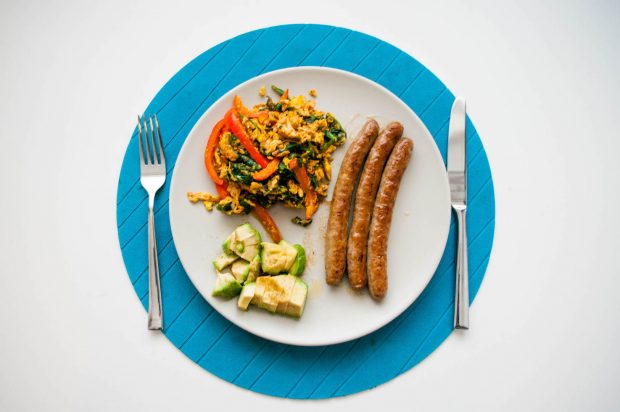Statistics and news’ articles about food and obesity in our world today are regular features in our media – for instance:
- “The World Consumes More Than 11 Million Pounds Of Food Every Minute Of Every Day – 2014.” (1)
- Overall, roughly a third of the food produced in the world for human consumption is wasted per year, which is 1.3 billion tonnes. (2)
- “Worldwide, obesity has more than doubled since 1980. In 2014, more than 1.9 billion adults, 18 years and older, were overweight. Of these over 600 million were obese.”(3)
- “Obesity has reached epidemic proportions globally, with at least 2.8 million people dying each year as a result of being overweight or obese.” (4)
It may seem that our world is bountiful in some ways – and certainly in my life we have more variety of foods than we did before the 1960’s. We have countless books, videos, TV shows, internet sites all about food, recipes, cooking, and even eating disorders and obesity or dieting – and in many of our health systems we have healthcare practitioners such as dieticians and nutritionists to support us. We also talk about food a lot in our daily lives, in our homes, and in our workplaces.
Why then is so much food wasted? And why are we already in an overweight and obesity crisis worldwide?
One of the things that strikes me is the type of education we have about food in our homes, families, schools and workplaces. I am not here saying it is all bad, but if it was ‘hitting the nail on the head’, these statistics would surely look different.
What if we were raised to understand the truth about food, around what is needed, the addictive nature of certain foods (e.g. sugar), right down to our relationship with food; the process of eating, from the way we shop, to preparing food, to the way we eat it, why we eat it and looking at our ideals and beliefs about food. Food is a deeply revealing and important study for us all.
Animals in the wild eat only what is needed, yet we as humans – who claim to be the most intelligent species – eat so many foods that aren’t good for us, we buy food we do not eat and waste it, and we eat in such a way that we become overweight, obese, developing diabetes or other ailments and conditions, seemingly seeing these things as ‘normal’ today despite the shocking statistics e.g. in the rise of obesity. Why is this?
I don’t know about you, but whilst in my family home we ate reasonably well-balanced meals (meat or fish and two veg, always freshly cooked), and my mother taught me to cook and prepare food, and at school we did have cooking lessons, I was never taught that eating is purely to truly nourish the body – and whilst I was taught about calories, and not to overeat certain foods (e.g. salt, or certain fats) – I was also never taught that the way you eat today is an investment in how you will feel tomorrow: eat poorly, under eat, or overeat, and you will feel the knock on effects later that day or the next day.
More so, our physical body actually knows which foods truly nourish it and which foods deplete or burden it. And whilst I have felt indigestion, or got tummy ache after eating certain foods, or felt sleepy or bloated when eating gluten or a runny nose when eating dairy for instance, it never dawned on me to listen more to my body about what it had to say about food and nourishment – and I kept on eating those same foods day in day out, despite the obvious symptoms they were causing.
That raises a few questions for me:
What if we were taught from an early age, or educated in our schooling, about the true value and purpose of food, and that it is purely to nourish the body?
What if we were shown that there is a ‘cause and effect’ of food so that we can learn for ourselves how to listen to our body as a marker? And if we were supported and encouraged to experiment for ourselves from a young age – to feel for ourselves the impact of foods that make us sleepy, foods that make us bloat, and foods that feel truly nourishing?
And what if we were educated to live in a way that it was normal to use our body as a daily barometer of our wellbeing – ‘The Body Is the Marker of All Truth.” Serge Benhayon (5)
Given the exponential rise of illness and disease in our world today and in particular the rise in obesity (3) (4) and diabetes (6), isn’t it time we started the conversation… to talk about these issues and our attitudes towards food? Only when we understand and build a true relationship with food will the statistics on obesity and diabetes, and on related issues such as food waste, be different.
By Jane, London
References:
- Thomson, J.R. (2104) The World Consumes More than 11 Million Pounds of Food Every Minute of Every day. Huffington Post. March, http://www.huffingtonpost.com/2014/03/18/world-food-consumption_n_4978947.html
- Endfoodwastenow.org (2013). End Food Waste Now – Facts. http://www.endfoodwastenow.org/index.php/resources/facts
- World Health Organisation (2016) Fact Sheet – Obesity and Overweight. June. http://www.who.int/mediacentre/factsheets/fs311/en/
- World Health Organisation (2014) Fact files on obesity. May. http://www.who.int/features/factfiles/obesity/en/
- Serge Benhayon. The Practitioner. Sergebenhayon.com. http://www.sergebenhayon.com/the-practitioner.html
- World Health Organisation (2016) Ten Facts about Diabetes. April. http://www.who.int/features/factfiles/diabetes/en/
Further Reading:
Food Choices – From Eating for Taste to Eating to Nourish
6 best ways to lose weight authentically (hint: it doesn’t involve fad diets or gym memberships)
What is living medicine?
The human face of sugar addiction





